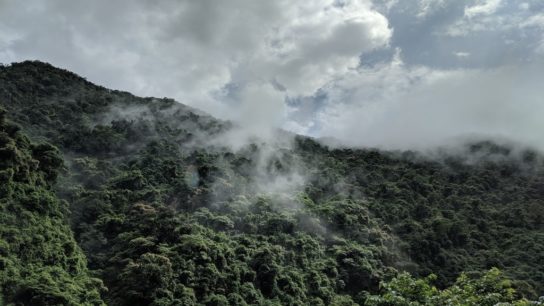New data published this week, suggesting that Amazon deforestation dropped 55% in one year, puts Brasília in a strong negotiating position to push for a conservation fund at the upcoming UN climate summit.
—
Brazil is set to launch a global conservation fund to protect tropical forests such as the Amazon and offer compensation to residents and landowners affected by deforestation at COP28, the country’s top climate diplomat has announced.
At the COP28 summit, which kicks off in Dubai on Thursday, President Inácio Lula da Silva is expected to propose a fund dedicated to tropical forest conservation efforts across 80 countries, according to Brazil’s Secretary for Climate, Energy and Environment André Corrêa do Lago, who presented the initiative last week at a meeting with seven other Amazon rainforest countries.
“At COP28, we’re going to have the beginning of a very important new stage. What has to be done will be debated first by the countries that have tropical forests,” he said.
The eight Amazon nations came together in the Brazilian city of Belem earlier this year to strengthen regional cooperation on key issues, including the climate crisis, deforestation, and the protection of Indigenous communities. Despite agreeing to several unified environmental policies, the countries failed to reach an agreement on a much-needed goal for ending deforestation in the Amazon.
Spanning 6.9 million square kilometres (2.72 million square miles) and covering around 40% of the South American continent, the Amazon is the largest rainforest in the world and also one of the most biologically diverse ecosystems, home to about 3 million species of plants and animals and more than one million indigenous people.

Under Lula’s predecessor, Jair Bolsonaro, deforestation in the Amazon rainforest rose sharply. The former president, described on several occasions as a climate denier, incentivised farmers to slash and burn the forest, reversed environmental legislation, and discarded land reserved for environmental tribes. These moves contributed to a surge in deforestation rates by 75% between 2019 to 2022 compared to the average of the previous decade. Since Lula’s election, however, the situation has improved.
The new government, which pledged to end deforestation in the Amazon by 2030, has taken important steps to slow down deforestation rates, including a crackdown on illegal miners and the recognition of more indigenous territories. Additionally, Lula committed to allocate 3 million hectares (7.4 million acres) of protected land by 2027 and strengthen the country’s environmental monitoring network.
These efforts are paying off.
On Wednesday, Reuters reported that forest loss across the Amazon is down 55.8% so far this year, compared to the same period in 2022. The encouraging data represents a major turnaround for the country and gives Brasília and the other Amazon countries more leverage to push for a conservation fund at the upcoming climate negotiations in Dubai.
“We need to have resources in volume, quantity and frequency to finance those who own forests,” Marina Silva, Brazil’s environment minister, told the Financial Times. “Because today the initiatives we have only encourage those who are deforesting to stop deforesting. They don’t encourage or pay those who are already preserving and keeping the forests standing.”
Featured image: Alexander Bonilla/Flickr
You might also like: Age of Union and Jane Goodall’s Legacy Foundation Form Partnership to Protect the Amazon Rainforest


















